 Locke, instructed and delighted the world. When the bookseller offered Milton five pounds for his Paradise Lost, he did not reject it, and commit his poem to the flames — nor did he accept the miserable pittance as the reward of his labours: he knew... Locke, instructed and delighted the world. When the bookseller offered Milton five pounds for his Paradise Lost, he did not reject it, and commit his poem to the flames — nor did he accept the miserable pittance as the reward of his labours: he knew...  The Quarterly Review - Page 4511836Full view The Quarterly Review - Page 4511836Full view - About this book
 | 1783 - 524 pages
...commit his poem to the flames, nor did he accept the miferable pittance as the reward of his labour; he knew that the real price of his work was immortality, and that polterity would pay iti* Had we the pen of Milton, we would nobly thank Lord Camden for thefe generous... | |
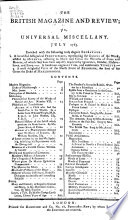 | 1783 - 424 pages
...commit hisi poem to the flames, nor did he accept the miferable pittance as the reward of bis labour; he knew that the real price of his work was immortality, and that pofterity would pay it!* Had we the pen of Mihqn, we would nobly thank Lord Camden for thefe generous... | |
 | Edward Christian - 1801 - 284 pages
...commit his poem to the flames, nor did " he accept the miferable pittance as the reward of his labour ; he " knew that the real price of his work was immortality, and that " pofterity would pay it.*' Note ;, page 411, line 20, word durjtiw.—Where an author tranffet3 all... | |
 | Edward Christian - 1807 - 100 pages
...commit his poem to the flames, nor did " he accept the miserable pittance as the reward of his " labour; he knew that the real price of his work was " immortality, and that posterity would pay it." The •booksellers or purchasers of copy-right, upon the present occasion, seem to be entirely... | |
 | Great Britain. Parliament - 1813 - 738 pages
...commit his poem to the flames, nor did he accept the miserable pittance as the reward of his labour; ne knew that the real price of his work was immortality, and that posterity would pay it. Some authors are as carele-j about profit as others are rapacious of it; and what a situation would... | |
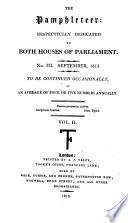 | Abraham John Valpy - 1813 - 600 pages
...miserable pittance as the reward of his labor ; 1 Milton's 1'roscWockl, 4to. ••»>• ip 17*. be knew that the real price of his work was immortality, and that posterity would pay it." In this eloquent declamation, with great deference to my Lord Camden, I am at a loss to find the... | |
 | Richard Esmond Comerford - 1817 - 152 pages
...commit his poem to the flames. Nor did he accept the miserable pittance as the reward of his labour ; he knew that the real price of his work was IMMORTALITY, and that posterity would pay the debt!" Mr. SCOTT generally strikes by a certain aggravation of the features of Nature, by the exaggeration... | |
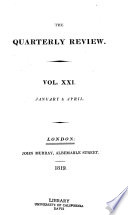 | 1819 - 596 pages
...for gain that Bacon, Newton, Milton, Locke, instructed and delighted the world. When the booksellers offered Milton five pounds for his Paradise Lost,...work was immortality, and that posterity would pay it.' Is it possible that this declamation should impose upon any man?* The question is * In opposition... | |
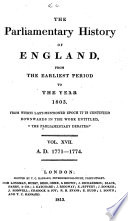 | William Cobbett - 1813 - 716 pages
...commit his poem to the flames, nor did he accept the miserable pittance as the reward of his labour; he knew that the real price of his work was immortality, and that posterity would pay it. Some authors are as careless about profit as others are rapacious of it ; and what a situation... | |
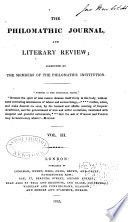 | 1825 - 486 pages
...commit his poem to the flames ; nor did he accept the miserable pittance as the reward of his labour. He knew that the real price of his work was immortality, and that posterity would pay it." AUGUSTUS; on, "KNOWLEDGE is POWER:" A TALE. BORN in an island of the western main, Where Art prevail'd,... | |
| |